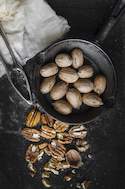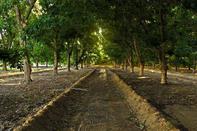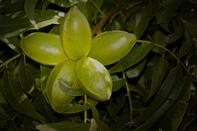
Pecan nuts, indigenous to Mexico and to California in the United States, are a great source of nutrition and have been used as a staple food by native Americans long before the founding of the United States.
The Algonquin Indians, who besides using it as a skin and lung medication also used it to create a fermented drink called powcohicora. The name is said to have derived from an Algonquin word used to describe “nuts that require a stone to crack”.
The trees grow fast and very tall if not controlled. They can take up to ten years to reach full production, but are able to produce nuts for more than a hundred years.
Global Production
According to the Agricultural Research Centre (ARC), South Africa’s first pecan trees were imported by one Mr. Wilkinson, a Natal nurseryman, towards the end of the 1800s, while the first grafted trees were imported in 1912 by FS Staniland of Willowfontein in Pietermaritzburg. The first commercial nursery was established by HL Hall and sons near Nelspruit in Limpopo Province.Local Production

Production Area
Pecan nuts were originally planted in subtropical areas in South Africa, but did not thrive there because it is not a subtropical crop.
Orchards are still found in these regions, but production has over time shifted to drier areas, with trees thriving in valleys along rivers with cold winters.
While pecans today are produced in all the provinces across South Africa, most production is concentrated in the Vaalharts and Lower Orange River in the Northern Cape.
Varieties
A whole range of varieties exist that all taste relatively the same to the undiscerned eater. These varieties differ in terms of disease resistance and tolerance, growth habits, production quality and volumes, thickness and ease of breaking their shells, as well as their cold and rain tolerance and in effect the places where they can be planted.Season

Sales
Being in the Southern Hemisphere, South Africa is in the ideal position to supply the Chinese market with fresh nuts for Chinese New Year.
Most of our nuts are exported to Asia, whereas small volumes are also exported to Europe and the United States. A handful of producers have found niche markets for organic nuts.
Uses

For bulk or Pecan Nuts export enquiries please use the enquiry link below.